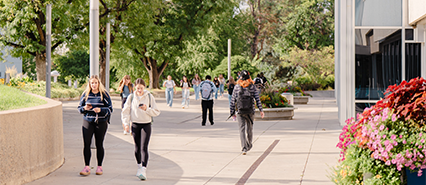Frequently Asked Questions
Based on what we know today, we have provided answers to some questions on the issue.
-
What is DACA?
- Deferred Action for Childhood Arrivals (DACA) was established by an executive order in 2012. It provides administrative relief from deportation to qualified individuals. The purpose of DACA is to protect eligible immigrant youth who came to the United States when they were children from deportation. DACA gives young undocumented immigrants: 1) protection from deportation, and 2) a work permit. The program expires after two years, subject to renewal.
-
What Are The Eligibility Criteria For DACA?
- You were under 31 years old as of June 15, 2012;
- You first came to the United States before your 16th birthday;
- You have lived continuously in the United States from June 15, 2007 until the present;
- You were physically present in the United States on June 15, 2012 and at the time you apply;
- You came to the United States without documents before June 15, 2012, or your lawful status expired as of June 15, 2012;
- You are currently studying, or you graduated from high school or earned a certificate of completion of high school or GED, or have been honorably discharged from the Coast Guard or military (technical and trade school completion also qualifies); and
- You have NOT been convicted of a felony, certain significant misdemeanors (including a single DUI), or three or more misdemeanors of any kind.
-
What is ASSET?
- In April 2013, the Colorado General Assembly enacted Senate Bill 13-033, often referred to as the Colorado Advancing Students for a Stronger Economy Tomorrow (ASSET) legislation. This legislation modified several procedures concerning the classification of students for tuition purposes. The Colorado ASSET law allows eligible undocumented students to pay in-state tuition and receive the College Opportunity Fund stipend at Colorado public colleges.
-
What if U.S. Immigration and Customs Enforcement (ICE) comes to campus?
-
As a public university, many areas of the Colorado State University Pueblo campus are open to the general public. Federal immigration enforcement officers may enter areas open to the general public without a warrant.
However, public access is limited in certain areas of campus. Included in this category of limited access spaces are campus buildings in which access is restricted by university-issued ID card, locked doors or monitored entryways, including university residence halls. Limited access spaces also include some buildings and spaces that may be unlocked during normal operations, including administrative or faculty offices, classrooms and laboratories.
In all interactions with any law enforcement officer, exercise professional courtesy and cordiality.
If you are a CSU Pueblo employee or student who is approached by law enforcement asking you for access to a non-public space, please call the Office of the General Counsel immediately at 719-549-2130 or email johnna.doyle@colostate.edu. For needs outside of 8 a.m.-5 p.m. Monday-Friday, call Pueblo County Sheriff's Office non-emergency number (719) 583-6250.
Additional guidance will be forthcoming shortly.
This section updated Feb. 8, 2025.
-
-
If students lose their Social Security Numbers (SSNs) as a result of their DACA eligibility expiring what can CSU Pueblo do for them in terms of financial aid?
- DACA students are only eligible for institutional (CSU Pueblo) aid or scholarships through the CSU Pueblo Foundation, so the amount of financial aid available for DACA students will not be affected by the repeal. The larger challenge of repeal for DACA students is a loss of work authorization that typically comes with the DACA program. Many of our DACA students work in the community to pay for school and life – many full time to cover their expenses. Because the repeal of DACA will subsequently terminate employment authorizations for all DACA students, we are currently looking at resources that may help pay for school and living expenses. We will continue to communicate with you about these resources when they come available.
-
Will I still get in-state tuition?
- If you qualify under ASSET for in state tuition there will not be a change to your instate status as long as the State of Colorado ASSET law does not change.
-
What kind of transportation does the university provide?
- The City of Pueblo has some bus routes that access campus until approximately 6 p.m. Please consider filling out the confidential Dreamers Support Form to help the University determine its support of transportation.
-
Who should I contact?
- Victoria Obregon is a point of contact for DACA, ASSET, and any undocumented students. All information will be kept confidential as defined under the Family Education Records Privacy Act (FERPA). Victoria may be reached at 719.549.2402 or victoria.obregon@csupueblo.edu.
-
Am I eligible for Federal and State aid?
- You are not eligible for Federal and State Financial Aid. However, you may be eligible for scholarships and/or Institutional aid (University provided financial aid). It is important for the University to know what the financial needs are of our Dreamer students in order to provide further financial support. Please consider filling out the confidential Dreamers Support Form to aid in the University’s support of financial needs. Also you may contact Monica Hardwick, Director of Financial Aid – Student Financial Services at 719.549.2753 or monica.hardwick@csupueblo.edu. She can assist you in determining your needs and eligibility for aid.
-
Am I eligible for private scholarships?
- The following are a list of scholarships that you may be eligible to receive. We will update this list when new information becomes available.
-
How can I help Dreamer students?
- You can help the University’s Dreamer students by designating a donation to a scholarship for Dreamer students through the CSU Pueblo Foundation at https://csupueblofoundation.com/donate/donate-now/. If you know of any Dreamer students please encourage them to reach out to the Victoria Obregon at 719.549.2402 or victoria.obregon@csupueblo.edu.


